FEATURING INSIDE
Erik Cheong Venture Partner, Widus Partners
Roel Timmermans Interim Marketing Manager, RTMC
Steven Claes CHRO, Montea

Erik Cheong Venture Partner, Widus Partners
Roel Timmermans Interim Marketing Manager, RTMC
Steven Claes CHRO, Montea
GO-TO-MARKET ADVISOR, SPEAKER & CONTENT CREATOR
CHARTING
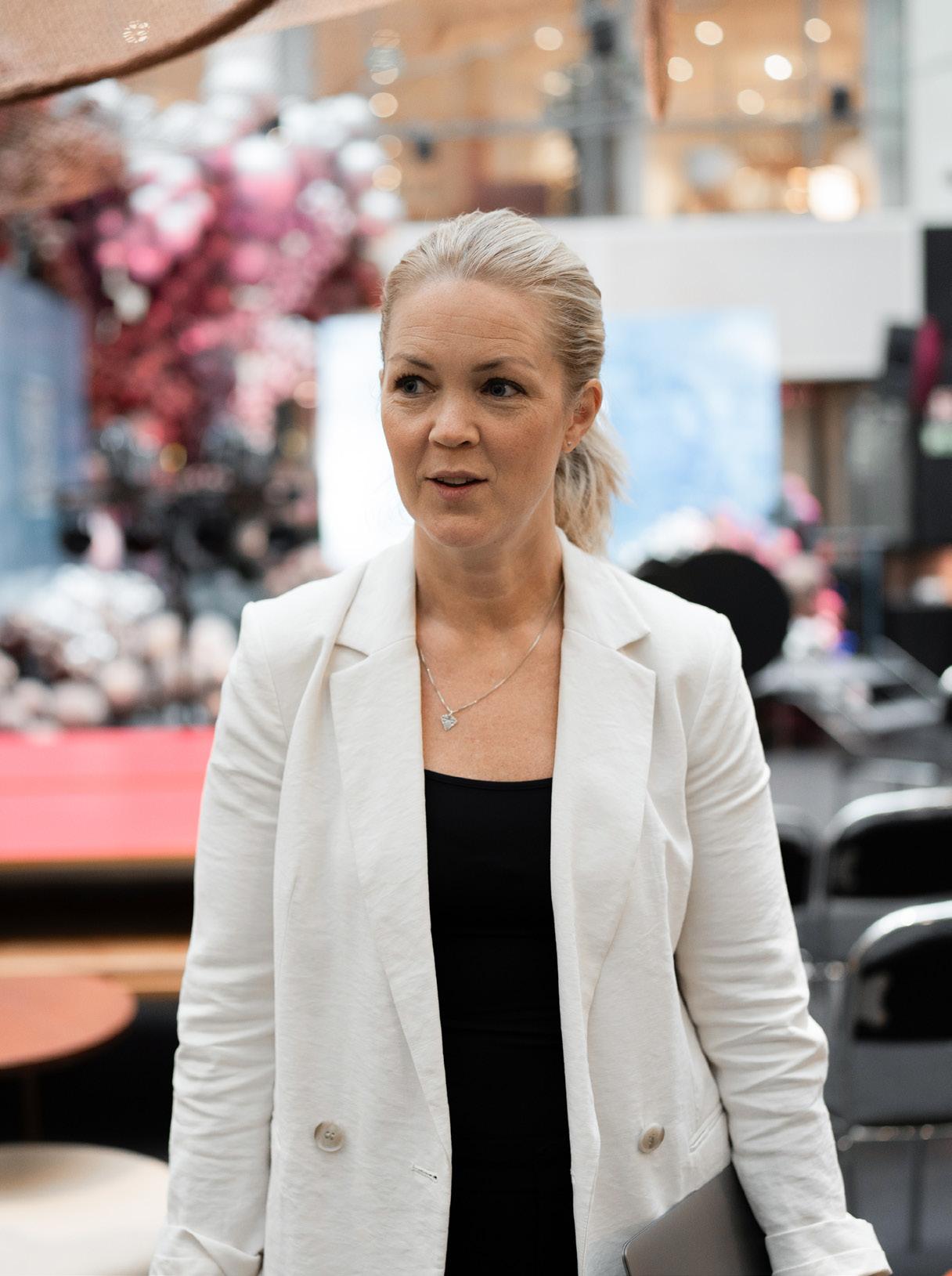
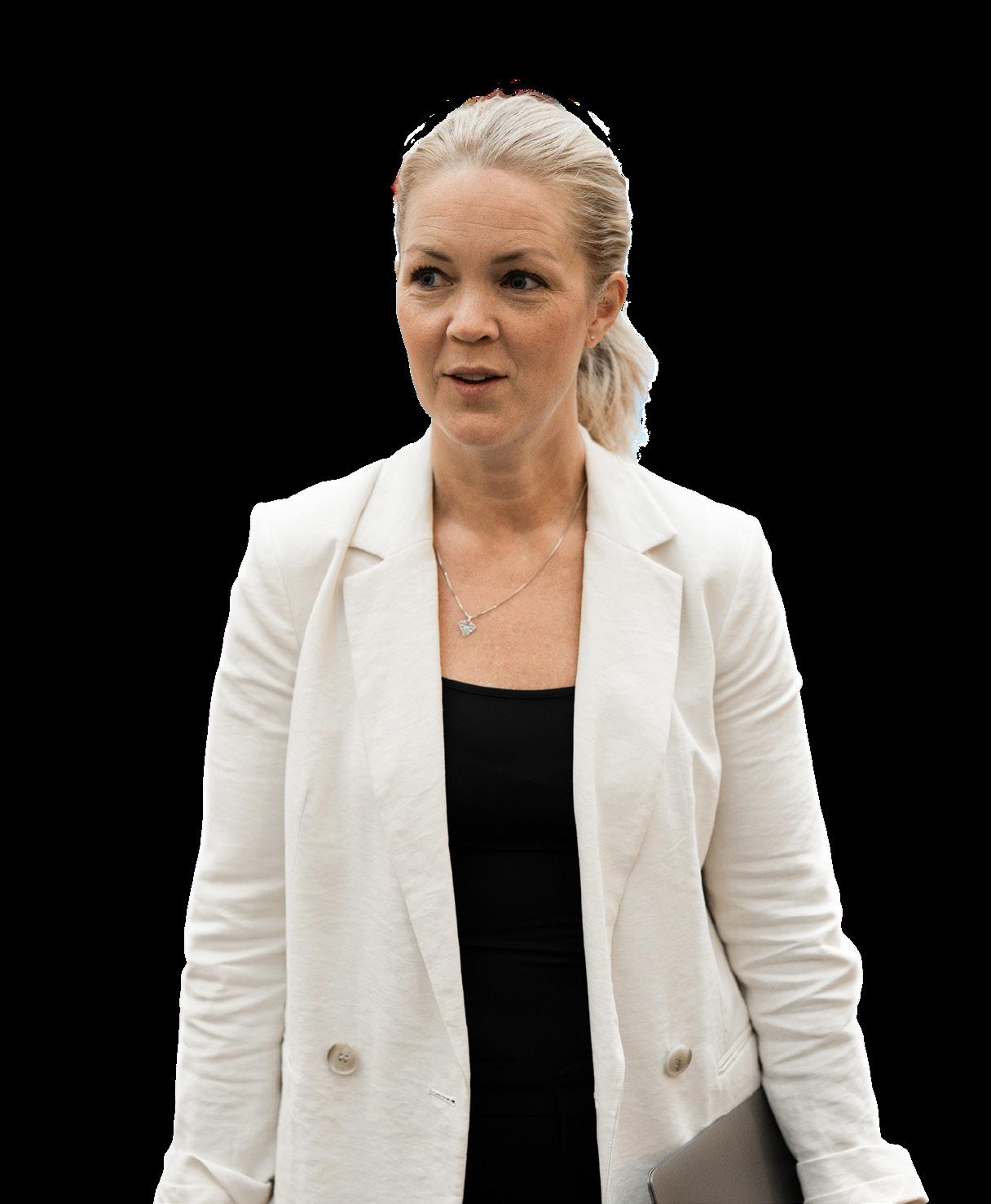
Managing Editor
Consultant Editors
Sarath Shyam
Dr. John Andrews
Emma James
Sabrina Samson
Naomi Wilson
Andrew Scott
Kwith Alexander
Editorial Enquiry: admin@cxoomagazine.com
Art & Design
Charlie Jameson
Branding & Marketing Partnership Free Subscription
Jennifer Anderson
Monica Davis
Rachel Roy Anna Elza
Sales Enquiry: admin@cxoomagazine.com
Louis Bernard Shirley David www.cxomagazine.com
16192 Coastal Highway, Lewes, DE 19958, USA
Europe
27, Old Gloucester Street, London, WC1N 3AX, UK
Middle East & Africa
P.O. Box 48299, Dubai Silicon Oasis, Dubai, UAE
Asia-Pacific Ramanashree Arcade, 18 MG Road, Bangalore, India


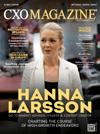
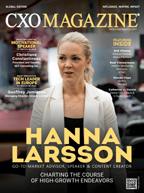

In the constantly evolving world of global business, there are exceptional leaders who go beyond the ordinary boundaries of entrepreneurship. These luminaries serve as sources of inspiration for aspiring leaders all over the world. Through their visionary thinking, tenacious determination, and unwavering pursuit of excellence, they redefine what is possible and inspire positive change within their respective spheres and beyond.
The mark of a truly exceptional business leader is not just their financial success, but their ability to motivate and influence others to create lasting change in society. They embody the values of innovation, resilience, and ethical leadership, setting an exemplary standard of excellence and integrity in the corporate world.
These trailblazers hail from diverse backgrounds and sectors, yet they share a common thread of extraordinary leadership traits. They harbor a clear vision for the future, coupled with the audacity to pursue innovative ideas and navigate adversities with fortitude and grace. Their capacity to motivate and empower others fosters a culture of collaboration, ingenuity, and continuous enhancement within their organizations.
Within the pages of the latest edition of CXO Magazine, you will encounter narratives spotlighting the Most Influential Motivational Speaker to Watch in 2024 and the Most Innovative Tech Leader in Europe to Watch in 2024. Each story serves as a testament to the dynamic and varied contributions of business leaders across different domains, underscoring their pivotal role in shaping the evolving business landscape.
Gracing the cover of this edition is Hanna Larsson, a seasoned Go-To-Market Advisor, Speaker, and Content Creator, whose illustrious career spans over a decade, during which she has been instrumental in shaping and amplifying the success stories of high-growth enterprises. Notably, her pivotal role in the meteoric rise of Remote underscores her expertise in crafting and scaling go-to-market strategies, sales apparatuses, and revenue streams.
While the paths they traverse may diverge, what unites these inspirational figures is their steadfast commitment to effecting positive change in the world. Whether through groundbreaking innovations, transformative business models, or philanthropic endeavors, they leave an indelible mark that extends far beyond the confines of the boardroom.
In a realm where leadership is as much an art as it is a science, our latest issue serves as a compass guiding us toward the future of leadership. We extend a cordial invitation to delve into these narratives, allowing them to inspire, enlighten, and spark dialogues that propel us all toward a future defined by visionary leadership and inclusive collaboration.
Happy reading.
 Sarath Shyam
Sarath Shyam
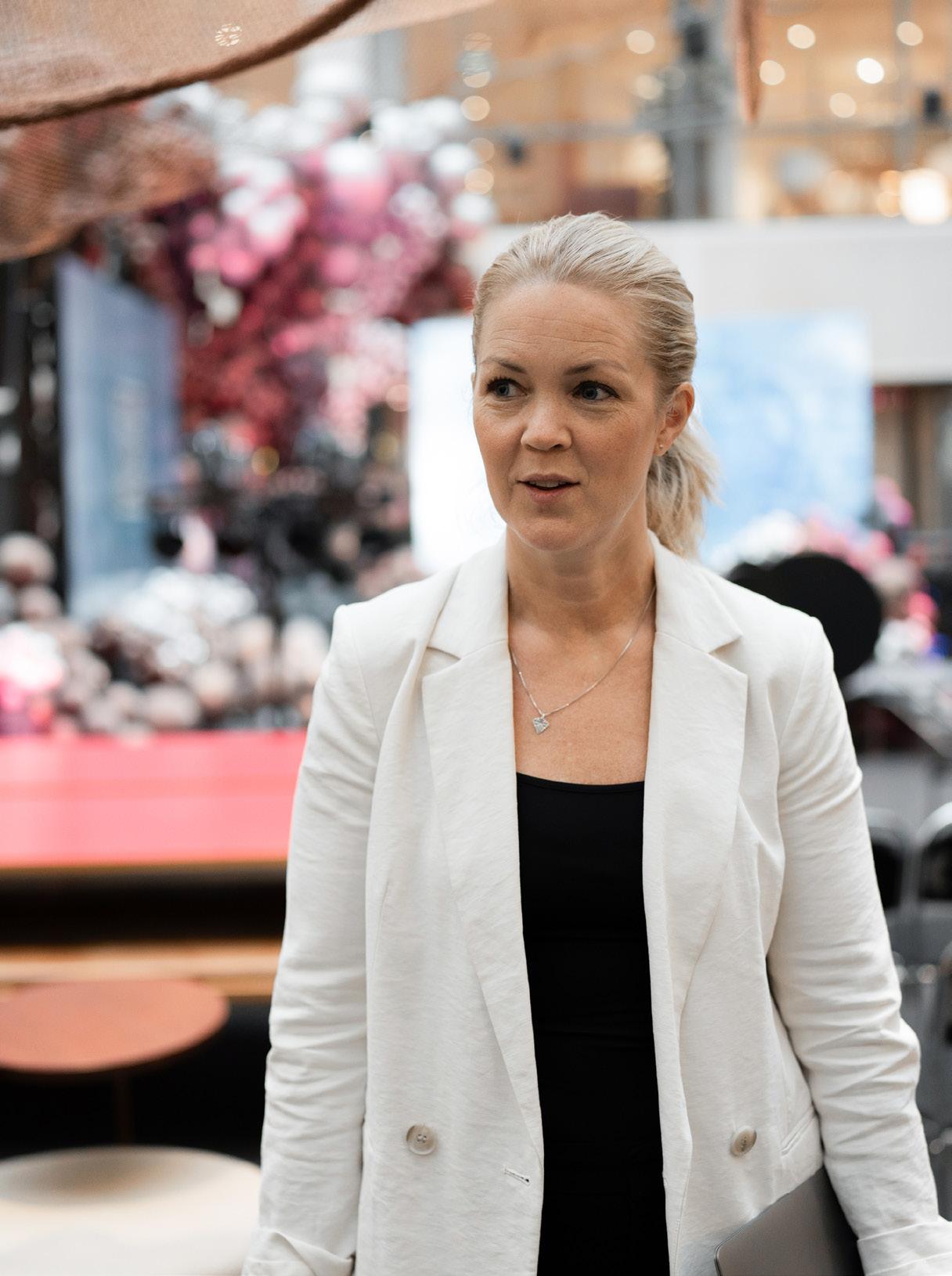
GO-TO-MARKET ADVISOR, SPEAKER & CONTENT CREATOR
CHARTING THE COURSE OF HIGH-GROWTH ENDEAVORS
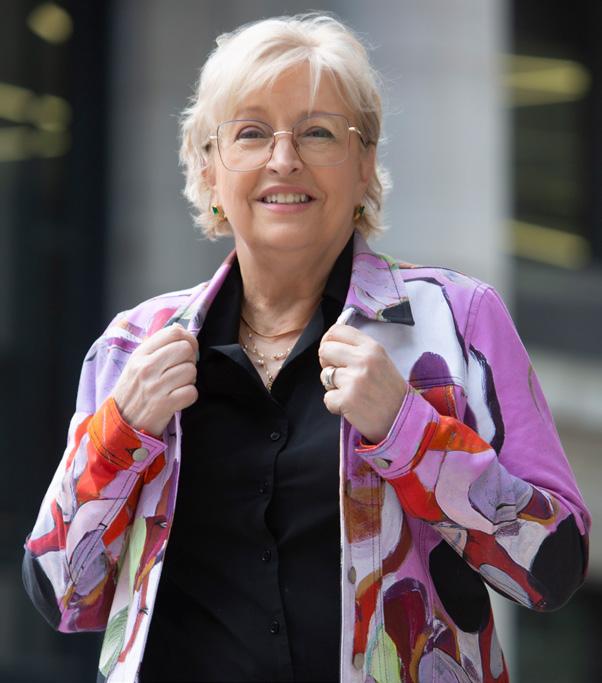
24 Christiane Constantineau, President and founder, 6DT Consulting Inc. Orchestrating Triumph in International Finance

40 Geoffrey Jamieson, Managing Director, Orcoda Limited
Driving

32
Erik Cheong, Venture Partner, Widus Partners
Venturing Beyond: A VC’s Strategic Insights on Accelerating Startup Success

56
Catherine Li-Yunxia, Global CEO Coach & C-Suite Coach
Mastering the Art of Leadership: Essential Skills for the C-Suite

18 Roel Timmermans, Interim Marketing Manager, RTMC
Change is a Skill, Not an Event
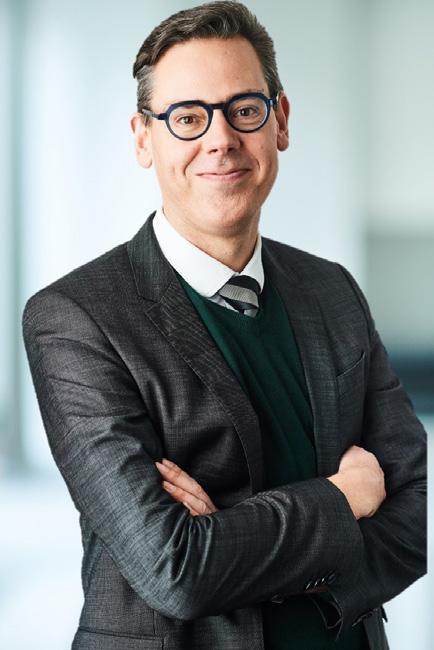
52
Steven Claes, CHRO, Montea
Recognizing the Future: Transforming Employee Experience Through Agile Recognition and Purpose-Driven HR Practices

In the dynamic landscape of disruptive SaaS, Deep tech, and HR tech companies, few voices stand out as boldly as Hanna Larsson's. A seasoned Go-To-Market Advisor, Speaker, and Content Creator, she has spent the last decade shaping and amplifying the success stories of high-growth companies. Notably, her instrumental role in the unicorn and hypergrowth phenomenon, Remote, showcases her prowess in building and scaling go-to-market engines, sales organizations, and revenue.
In an exclusive dialogue with CXO Magazine, Hanna takes us on a journey through her remarkable career and insights. From dissecting the intricacies of go-to-market strategies to unraveling the current pulse of the global startup ecosystem, Hanna shares her wealth of experience. Join us as we delve into the solutions she champions for addressing industry challenges, explore the exciting opportunities she envisions for startups in the coming years, and gain invaluable glimpses into the future of work – a domain she passionately advocates for. Here are the compelling excerpts from our insightful conversation with Hanna Larsson.


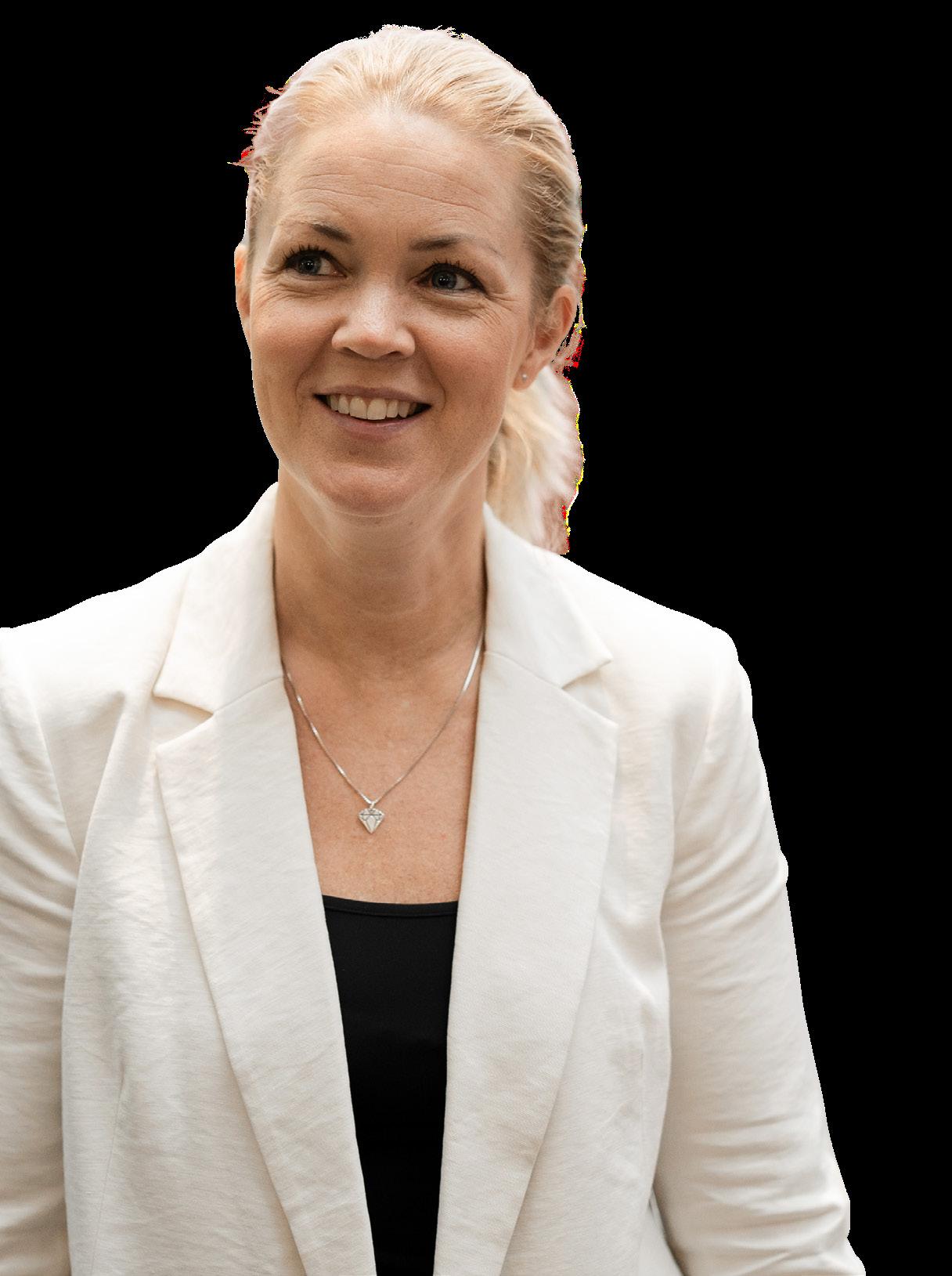
Can you share a bit about your journey in building and scaling go-to-market strategies, sales organizations, and revenue in disruptive SaaS, Deep Tech, Medtech, and HR Tech companies over the last decade?
Over the last decade, I have built and scaled go-to-market engines, sales org, and revenue at disruptive SaaS, Deep tech, and HR tech companies.
Before starting my own company, I built and scaled the unicorn and hyper-growth company Remote as Sales Director in EMEA. We built and scaled Remote in EMEA from 0 to 30 million dollars in 18 months.
In July 2021, we became a unicorn and one year later in April 2022, Remote was valued to $3 billion.
I joined Remote early and built, hired and led the sales team (from 2-87 people) and
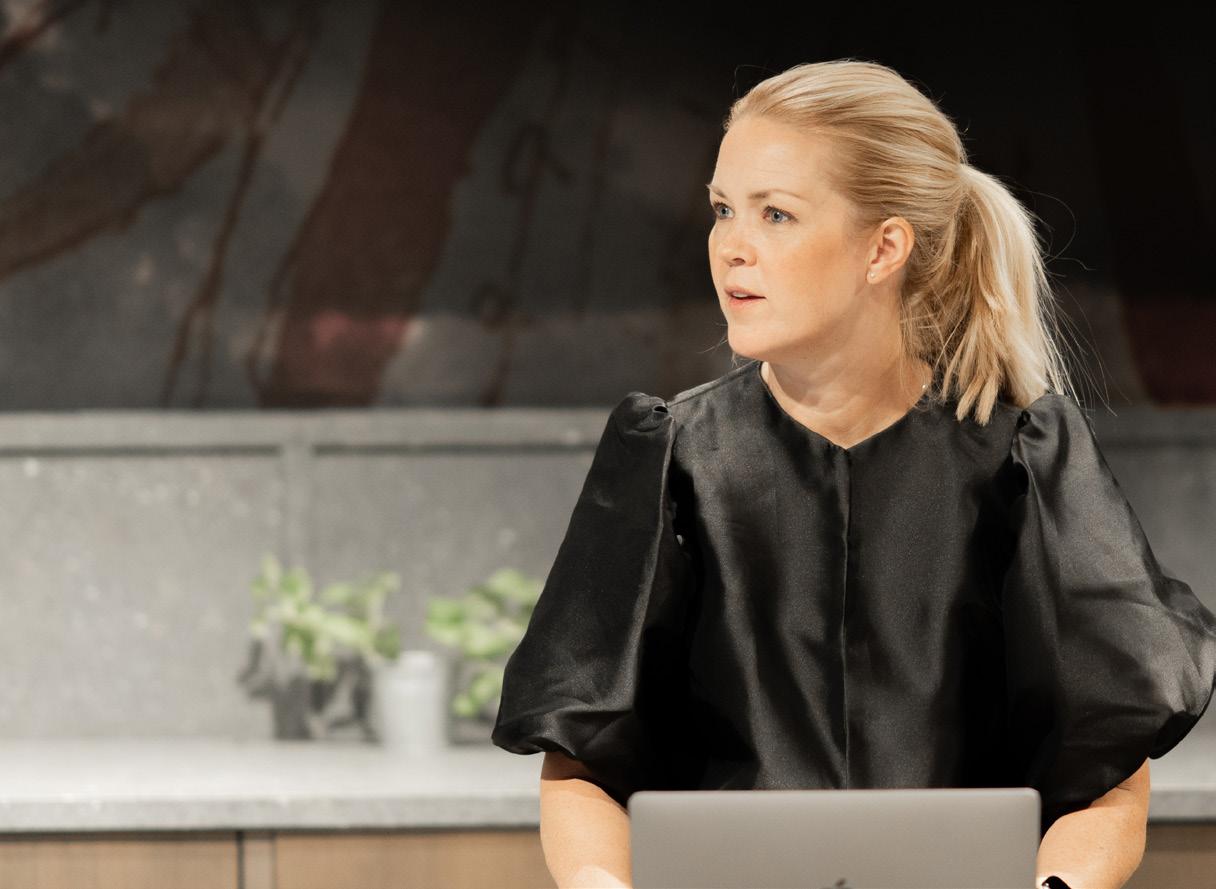
Today, I help founders build and scale high-growth companies, audiences, and high-performing teams

we all worked remotely from 22 different countries. I was fortunate to be able to attract top talent to Remote. It’s hard to find a more meaningful mission and purpose than to help people get access to work and economic opportunities.
Today, I help founders build and scale high-growth companies, audiences, and high-performing teams. I'm also a huge advocate for the future of work - how the world of work is evolving and all the opportunities it brings to people around the world to build a better life.
When I coach startup founders, I teach them how to build high-performing teams, how to go to market and build sustainable revenue growth, and the importance of having a relentless focus on the customer, the team, speed and execution.
Hanna’s previous go-to-market experience:
● Global hiring - hire anyone, anywhere in the world
● Strongest material in the world
● Digital transformation of HR
● Nano surfaces optimization
● Call tracking
● Breast milk analysis
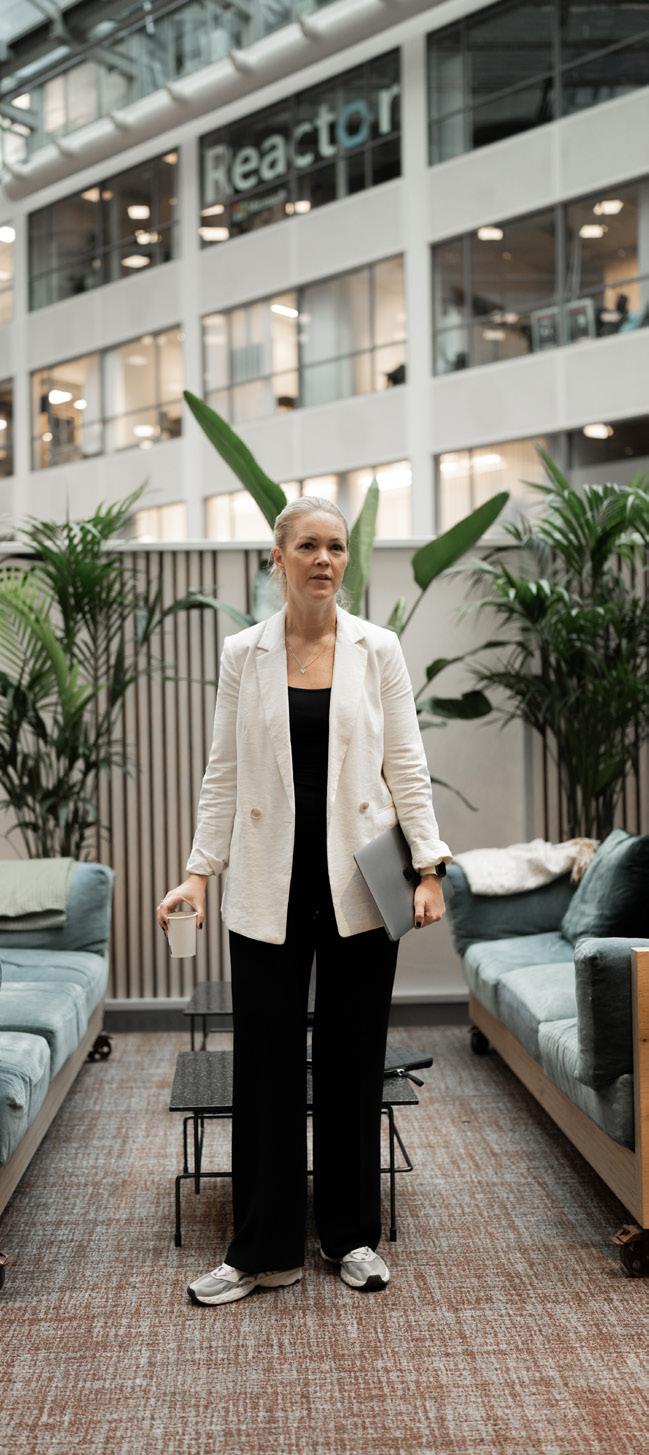
Your recent experience was to scale the unicorn and hypergrowth company. Could you tell us more about your role in this expansion?
Remote reached out to me when they were only 26 people. I joined to lead the global sales team, and ended up taking on the EMEA market because of the time difference and us growing so fast. I built, hired and led the sales team. We moved from zero to $30M in ARR during 18 months. My team of 87 people in EMEA were located in 22 countries. We all worked remotely.
While we built a scalable and repeatable sales process and business model, we also invested heavily into building a great culture. We managed to create a great team spirit, and we scaled knowledge and learnings fast on the team. This enabled us to grow faster. People are everything in business.
Tell us about the go-to-market agency, Huntrs, that you founded. What motivated you to start this venture, and what unique value does Huntrs bring to its clients?
I have 15 years of experience of working across many different industries. From medtech, nanotech, deeptech to SaaS, with one common denominator: go to market. After the journey with Remote, I started Huntrs to enable startups to build lean, fast-moving and profitable startups.
During the last 2 years I have built an audience of 112,000 followers on LinkedIn, so I decided to start 2 FREE
weekly newsletters: The Future of Work and Huntrs. In 2023 I managed to build a 100% inbound business during 2023 through organic content and I teach others how to do the same.
I am just getting started.
Given your experience working with companies worldwide, how do you perceive the current state of the global startup ecosystem?
Money was cheap for too long. We have left a period behind us now of “growth at all costs” and the whole startup scene and how we go to market has changed. Sooner or later, shortcuts and expensive customer acquisitions catch up on you, and we are now seeing this in the market. We needed this change of going back to the core and building more sustainably.
This is the old way:
● Spend like there's no tomorrow
● Inefficient “spray and pray”
● Growth at all costs
● Hire, hire, hire
● Paid ads
The new way:
● Content-led
● Ecosystem focus
● Smart partnerships
● Reinventing outbound
● Small & personal events
● Build REAL relationships
● Leverage AI & automation
● Efficient profitable growth
● Human and non-scalable actions
● Build community around your brand
● Experiment with content on social media
● Build a lean team: a mix of FTE + freelancers
● Founders & C-levels building personal brands
Efficient and lean startups are the new sexy. Every startup needs to see themselves as a media company, and find ways to grab ATTENTION.
I have 15 years of experience of working across many different industries. From medtech, nanotech, deeptech to SaaS, with one common denominator: go to market
Every startup needs to see themselves as a media company, and find ways to grab ATTENTION
Technology continues to change the world and the barrier to entry is lower than ever before.
Building a lean, profitable business without pressure from investors IS 100% doable for so many people today.
The landscape and ecosystem has changed.
Alex Lazarov in Entrepreneur magazine describes it well:
“Camels adapt to multiple climates. Camels survive without food or water for months. When the time is right, they can sprint rapidly for sustained periods of time. Unlike unicorns, camels are not imaginary creatures living in fictitious lands. They are real, resilient and can survive in the harshest places on Earth. While the metaphor

may not be as flashy, these startup camels prioritize sustainability, and thus survival, from the get-go by balancing strong growth and cash flow.”
Could you share some insights into innovative approaches or solutions you've seen effectively addressing these challenges?
Yeah absolutely. We are building more lean now. Human and non scalable actions are effective. We see companies having a mix of full-time employees and freelancers.
And we are living in the attention economy and it's becoming more and more common for companies to leverage it. So,
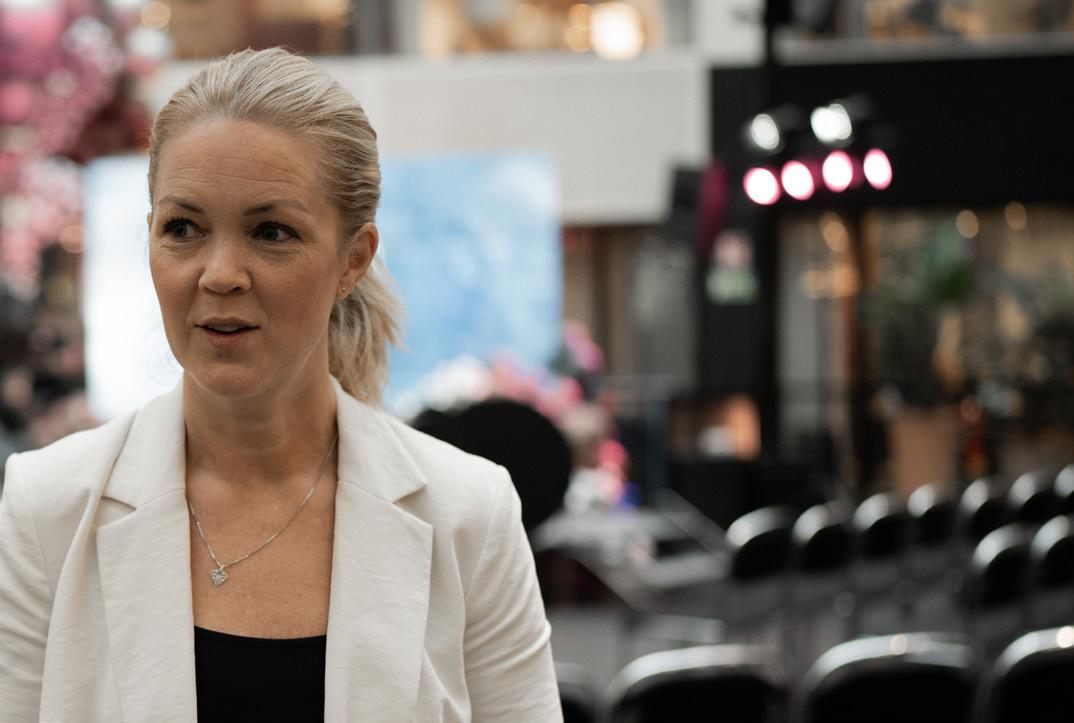
every company should see itself as a media company, finding ways to grab attention, build an audience, and speak with that audience. This is where people spend their time today. A company today needs to be really good at capturing attention.
What advice would you give to earlystage startups looking to establish effective go-to-market strategies and build sustainable revenue streams?
Try to bootstrap as long as you can. Create an offer, build an audience, drive traffic to your website, convert that traffic and find ways to put that on REPEAT.
Leverage the attention economy. Build lean. Build an ecosystem around your product offering.
Lean on AI. Find out what AI can do to develop your business to the next level.
We are living in a unique moment in time.
Literally, anyone who has something to say and has a connection to the internet can speak to the world, and build distribution, and an audience.
And then monetize that audience. Put the founder in focus, create content and build an audience and then fuel revenue growth to your company. It’s the lowest hanging fruit and by far the most effective way to start a company today.

Looking ahead, what do you see as the most exciting opportunities for startups in the next few years?
Without a doubt, transitioning and adapting to a business world and world of work completely changed by AI.
When the car came, everything changed.
When the tractor came, everything changed.
When the TV came, everything changed.
When the computer came, everything changed.
When the plane came, everything changed.
Technology will continue to change the world.
And AI is our new reality.
How do you stay updated on the latest trends and developments in the tech and startup industry?
I listen to podcasts, business news, newsletters from my favorite content creators, I consume a lot of content on social media and I read a lot.
What motivates you in your role as a Go-To-Market Advisor, Speaker, and Content Creator?
Starting my own company and continuing to work with my passion and helping founders go to market, has been like coming home for me. Entrepreneurship is home. It’s independence and freedom that I can’t compare to anything else. Finally, I can use all of my strengths and I don’t need to hold back any longer.
Where can our audience connect with you or learn more about your work?
They can follow me on LinkedIn, I share content every day. I also have two newsletters: Huntrs for founders and builders and The Future of Work Newsletter for anyone who wants to learn, adapt, and win in their life, business and career.





Roel Timmermans is a passionate advocate for fostering positive workplace cultures, nurturing high-performing teams, and cultivating exceptional leadership qualities. With a background in marketing, having worked for small start-ups to scale-ups to big-name brands like Heineken, EssilorLuxottica (Ray-Ban), Roel possesses a deep understanding of the practices that undermine employee morale and engagement as well as what setups, mindsets, and leadership attributes contribute to organisational success. On LinkedIn, he advocates this positive work culture daily.

Interim Marketing Manager, RTMC
Roel Timmermanshings are changing.
They’re changing fast.”
“We have to focus on innovation, and we need to be flexible.”
“We need to be consumer-obsessed and evolve along with them.”
Things we hear a lot within big companies. No doubt, the realisation of having to evolve is there. We can no longer keep doing what we did to get what we got.
However, change is too often being seen as an event and not as a skill. Every couple of years, perhaps with the change of higher management and a new view on the company strategy is presented, and off we go. Sail is set, and we’re steering towards goals.
In those situations, we see change as an event. Something happened in the past; we look at the results, we see a possibility to change direction, we make the changes, and then expect the results to come.
If we look at change from a different perspective, however, we can also start looking at it as something that should be embedded in the organisation. Look at change as a skill you can practise.
We all know that change can come rapidly. In November 2022, I was running a creative team in a big corporate multinational. Quite often, we had conversations on how AI might take over work in the future. Our assumption: creative people were safe.
When change comes, you’ve set yourself up as a jumbo jet trying to compete in an air race


AI is great at doing things that require formulas, at things that can be automated, at repeatable tasks. It surely could not do something that requires a spark of inspiration, a whip of the pen, a creative vision.
On the 30th of that month, ChatGPT launched. Those conversations? Straight to trash.
Copywriters, authors, and ad copy specialists…. were stressed out. The change came at an unpredicted pace.
What made everyone freak out? They’re previous fragile thinking. If you assume work, processes, and solutions next year will be as they are today or as they have been the past x years, you’re building a fragile company.
When change comes, you’ve set yourself up as a jumbo jet trying to compete in an air race.
When you start looking at your company as something where you cannot plan for everything, let alone define every single task into perfectly mapped processes, you’re taking a step towards anti-fragility. When companies start looking at employees as problem solvers instead of production units, they take a step in the right direction.
Let go of the waterfall approach of running a business and start embracing a more agile approach.
Start focussing more on impact; what problem is it that you want to provide a solution to? Then, start focusing on the outcome, not just the output.
Build a culture that allows people to feel safe, to feel valued, and to feel like they are contributing
Whenever you focus on output, you’re forgetting to actually solve a problem.
Look back at Kodak. They were among the first to develop a digital camera, but they were reluctant to see this as a better solution to the problem they were solving: visually capturing memories.
If they were set up in a manner that would have employees focus more on the outcome, they would most likely start focusing on improving that first digital camera. After all, most likely, the first conclusion would have been:
● It visually captures memories
● It’s faster from capture to share
● It lowers the amount of failed attempts
● There’s no more need to carry additional products (film)
But instead Kodak remained focussed on what it proved to be efficient in, what it built processes and factories for. It focussed on output.
Most companies nowadays are very complex in terms of setup, problems they tackle and predictability of the business they’re in. The issues they solve often cannot simply be broken down into very definable What, Who, How’s.
In those cases, you can plan all you want but the only thing you can be sure of, is the fact that
the plan will never reach its deadline, budget or quality level.
If you cannot answer those three points, you’re better off setting your company up for non-linear change.
Start embedding a culture that allows for more agility. Build a culture that allows people to feel safe, to feel valued, and to feel like they are contributing.
Doing so will make sure you have a culture that will engage people to come up with better ways to provide the impact you wish to make. To not be focused on merely delivering what is asked of them.
It will also speed up your rate of innovation allowing you to become more flexible and thereby become less fragile.
If a big change is to come, you now have a team that simply sees this as another problem to solve, by breaking it down into bits, providing solutions rather than refitting a product to a new use case. An anti-fragile team also will not need to completely change their way of working to whatever management will come up with.

 Christiane Constantineau
Christiane Constantineau
Christiane Constantineau embodies the spirit of an extraordinary Canadian executive who's faced life's challenges with remarkable resilience and determination. Born in a small town near Ottawa, her journey began with a health challenge in her youth when she was diagnosed with rheumatic fever, damaging her heart. Against all odds, she chose early motherhood, bringing two sons into the world, Benoît and Mathieu.
“I started working at a young age to support my education, eventually earning a bachelor's degree in administration and one post-graduate diploma in corporate finance. My commitment
to education also led me to complete an Executive MBA,” shares Christiane. Learning the value of hard work from her parents, Christiane embarked on a path in administration and accounting, earning degrees and diplomas. Christiane career took her to South Africa, where she played a pivotal role in establishing business service centers. “This special mission gave me a global perspective on the financial world. I lived in Cape Town for a year during this endeavor, emphasizing my dedication to my career despite being a single mother at the time,” says Christiane. Back in Canada, she contributed to prestigious organizations before venturing into entrepreneurship. In
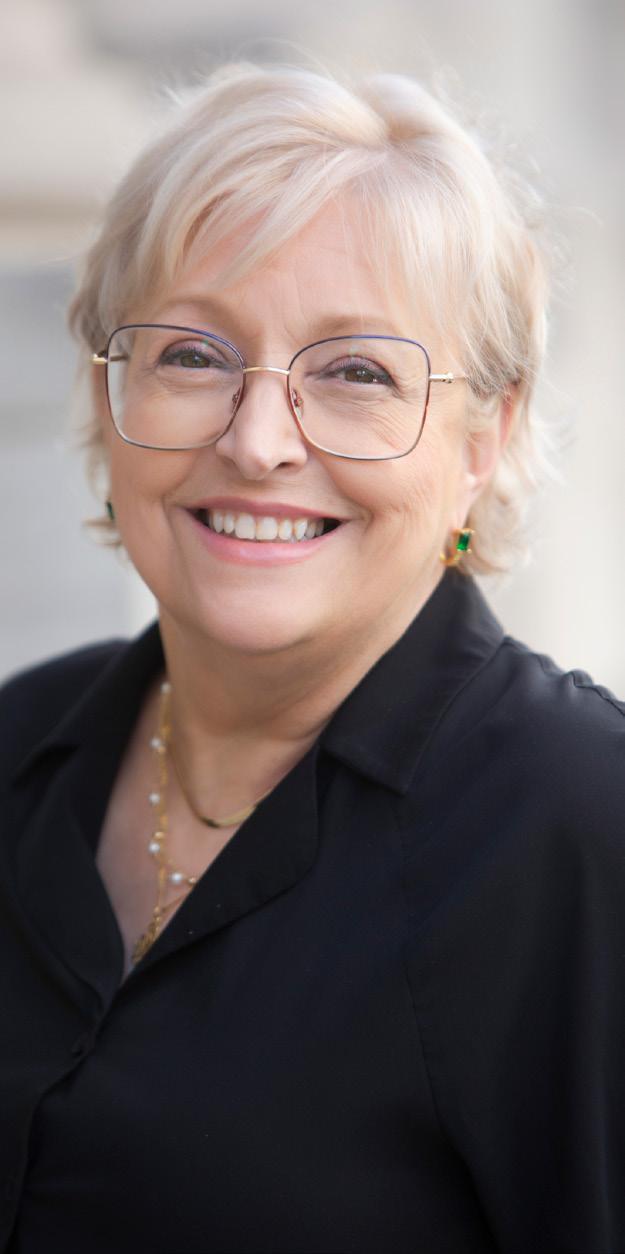
2014, she founded Turbulence, delving into groundbreaking projects like electric transit systems. Two years later, 6DT Consulting emerged, which has since become a highly successful cloud consulting firm specializing in cash flow management and financial software. Christiane adds, “I also support small and medium-sized enterprises (SMEs) in financing their projects since I have worked so many years in the financial services sectors.”
Christiane's journey wasn't without personal trials, including her son's illness and her own battle with breast cancer in 2019. Undeterred, she aimed to double her business turnover. Christiane's commitment to others led her to write "Cancer Sucks...: The Journey of an Entrepreneur," sharing her personal story and offering strategies and her fight against cancer while managing her business. In 2023, she gracefully passed her business to her son while actively contributing to global business.
Beyond her professional triumphs, Christiane finds joy in volunteering, golfing, and immersing herself in technology. Her warmth and dedication extend to her community, where she serves as a Board Member for non-profit organizations. Amidst it all, her loving family, husband Martin, and sons Benoît and Mathieu stand as pillars of support. “I remain actively engaged with clients worldwide, serving as a CFO or finance director for subsidies established in Canada while the head office is abroad,” shares Christiane.
Christiane's commitment to others led her to write "Cancer Sucks...: The Journey of an Entrepreneur..." sharing her personal story and offering strategies
Christiane has made a name for herself in the pulsating world of finance. As the President and founder of 6DT Consulting Inc., Christiane helps Small and Medium-sized Enterprises (SMEs) succeed by crafting financial plans that help them navigate the unpredictable waters of business.
Christiane shares, “I work closely with the company's leadership to create comprehensive budgets that align with our strategic goals. This involves forecasting revenues and expenses, identifying potential risks, and setting financial targets.” She places a strong emphasis on managing the company's cash flow to ensure sufficient liquidity for short-term and long-term obligations. This involves optimizing working capital and effectively managing accounts receivable and payable.
Christiane establishes key performance indicators (KPIs) to meticulously monitor the company's financial performance, encompassing metrics such as profitability, return on investment (ROI), and liquidity ratios. Her commitment to regular variance analysis between budgeted and actual financial results ensures a proactive approach to identifying areas requiring attention or improvement, guiding informed decision-making.
“With a comprehensive focus on risk management, I assess financial risks that could impact the company, ranging from market volatility to regulatory changes and credit risks,” says Christiane. Implementing strategic measures to mitigate these risks, she simultaneously develops contingency plans for financial crises or unexpected events, fostering a resilient organizational response to unforeseen challenges.
Cost management remains a continuous priority as Christiane explores opportunities to reduce costs without compromising product or service quality. This involves renegotiating contracts, optimizing operational processes, and integrating cost-saving technologies. “I assist in making informed decisions about capital allocation by evaluating investment opportunities, assessing their potential returns, and determining the optimal funding sources,” pinpoints Christiane.
Christiane's oversight ensures accurate and transparent financial reporting, which is vital for
compliance and decision-making. Her effective communication of financial information to company leadership and stakeholders enhances their understanding of the financial implications associated with their decisions. Staying abreast of financial regulations, she upholds ethical standards in financial management, promoting transparency, accountability, and integrity.
Functioning as a financial advisor to company leadership, Christiane provides invaluable insights and recommendations, leveraging her extensive experience in finance and business management. Her holistic approach as a CFO for
Christiane establishes key performance indicators (KPIs) to meticulously monitor the company's financial performance, encompassing metrics such as profitability, return on investment (ROI), and liquidity ratios
private companies revolves around effective financial planning, rigorous analysis, risk management, cost control, transparent reporting, and strategic guidance. Ultimately, her goal is to ensure the financial success and sustainability of SMEs in a dynamic and competitive business environment.
Christiane is an incredibly talented leader who has a unique approach to seizing new business opportunities. She values flexibility and adaptability, which helps her to quickly adjust strategies in response to new opportunities or market conditions. “I encourage a culture of experimentation and continuous learning, which enables my client’s team to effectively pursue new ventures and continually improve their skills,” shares Christiane. She also values collaboration and teamwork, which allows different perspectives to be brought together to identify and seize new opportunities.
When it comes to establishing and maintaining long-term strategic partnerships, Christiane is very particular and strategic. She believes that research, due diligence, and collaborative problem-solving are all essential in the initial stages of forming a partnership. “Maintaining long-term partnerships is an ongoing process that requires dedication, effort, and a commitment to nurturing the relationship. To do so, I try to be connected as much as possible with my contacts around the world. Small gestures like sending a note, asking if I can be of assistance if needed,” explains Christiane.
A great example of Christiane's partnership building skills was during a site visit to Chile. She conducted a comprehensive country analysis beforehand and carefully selected a local partner with the help of a Canadian accounting partner. This decision proved to be crucial when unforeseen challenges, such as personnel issues and nationwide strikes, disrupted operations in Chile. “In the face of these challenges, the strength of our partnership network became evident. Having reliable partners in the country allowed us to navigate these turbulent waters more effectively,” says Christiane. This experience highlighted the importance of selecting the right partners and having a well-thought-out contingency plan. It also showed that a strong partnership built on trust, collaboration, and strategic planning can overcome adversity and thrive in the long term
Effectively communicating with decisionmakers at all levels within an organization is a crucial aspect of Christiane's role, particularly when working with small businesses. The relatively flat organizational structure allows for direct access to key stakeholders, including the president and the board of directors. Christiane's bilingual proficiency in both French and English has also significantly contributed to her success in the international business arena. Her French accent serves as a unique asset, making her communication style distinctive and memorable.
With multiple qualifications, including an executive MBA, a post-graduate diploma
Effectively communicating with decision-makers at all levels within an organization is a crucial aspect of Christiane's role, particularly when working with small businesses
in finance, and a bachelor's degree in business administration, accounting, and commercial credit, these academic achievements have shaped Christiane's career by providing new perspectives, unlocking opportunities, and deepening her comprehension of both clients and partners.
Reflecting on challenges encountered in her career, Christiane mentions collaboration complications with some female colleagues due to differing ethical perspectives. “I consistently achieved high levels of performance and never received any formal reprimands. It's worth noting that my boss recognized my strong work ethic and appreciated my professionalism in the workplace,” says Christiane.
Having been a mentor for many years, Christiane emphasizes the value of mentorship in providing valuable insights, knowledge, and expertise to help mentees learn and grow in their careers or personal development. She affirms, “Mentors can provide valuable insights, knowledge, and expertise, helping mentees learn and grow in their careers or personal development. It is a big commitment and time-consuming. So, you need to be prepared to give them.” For aspiring professionals in the fields of international finance and banking, Christiane advises staying updated in their professional fields, stepping out of their comfort zones, and dedicating time to listen to colleagues and clients for continuous growth and success.
Erik Cheong, a seasoned entrepreneur who has seamlessly transitioned into the world of venture capital, embodies the spirit of innovation and success in Southeast Asia's dynamic business landscape. Co-founding Park N Parcel in 2016, he garnered recognition as one of Forbes' 30 Under 30 in Asia for Consumer Technology in 2019. Notably, Erik's entrepreneurial prowess was honored with the Quest Ventures - EDGE National Youth Entrepreneurship Award in 2018.
An esteemed member of the eFounders Fellowship by Alibaba Global Initiatives and a distinguished participant in the 500 Global Launch Cohort, Erik's journey has been widely covered by reputable media outlets, including CNBC, Nikkei Asian Review, Yahoo Finance, and CNET, among others.
Before assuming his role as a Venture Partner at Widus Partners, Erik Cheong served as the Chief Executive Officer of GCL Asia, overseeing operations across seven countries. GCL's footprint extends to connecting developers, publishers, and brand owners, fostering entertainment properties that resonate with consumers throughout the region.
In an exclusive interview with CXO Magazine, Erik Cheong shares invaluable insights into his entrepreneurial journey in the Southeast Asian market. From pivotal lessons learned to illuminating opportunities for aspiring entrepreneurs in the region, he delves into current industry trends and more. Here, we present excerpts from our enlightening conversation with Erik Cheong.


Could you please share a bit about your journey from being a serial entrepreneur to your current role as a Venture Partner at Widus Partners?
I am a serial entrepreneur turned venture capitalist. In 2016, co-founded Park N Parcel in Southeast Asia and made it on the Forbes 30 Under 30 Asia in 2019 under Consumer Technology. I
was awarded Quest Ventures - EDGE National Youth Entrepreneurship Award in 2018 and also an active member of the eFounders Fellowship by Alibaba Global Initiatives & part of the 500 Global Launch Cohort.
Prior to joining Widus Partners as a Venture Partner, I held multiple management roles as the Chief Executive Officer of GCL Asia
(Gaming and influencer Marketing) and OMNi (the First Super App in Central America and the Caribbean). On the side, I have also been an active angel investor since 2018, investing in over 15 startups such as Blood (D2C Female Product), Frontier Digital Asset (Crypto Mining), Nodeflair (HR Tech), and more.
What inspired your transition from entrepreneurship to venture capitalism?
Firstly, I am too old to be an entrepreneur/hustler again; it requires lots of time and effort to build a successful business. Hence, I am becoming a VC. Joke aside, being a venture capitalist enables me to invest in the next generation of entrepreneurs,
Technology startup funding is drying up due to the high-interest rate environment and availability of better-yield financial products in the market

allowing me to meet cool co-founders and new ideas & business models (Always learning new things and meeting new people/friends).
As an entrepreneur before, I can totally understand the co-founder's journey. I want to help them grow by sharing my startup/management experience and leveraging the global network I have built over the years.
Last but not least, I want to be part of something cool. It is an amazing experience to support startups from nothing to unicorns (It is like watching a baby grow up to become a young
adult). Witnessing how they grow from a small 2-3 man team to a fully structured organization is the kind of sense of accomplishment that motivated me to stay in the technology industry.
Drawing from your experience cofounding Park N Parcel, what key lessons did you learn as an entrepreneur in the Southeast Asian market?
I have 101 Key Lessons, but these are my top 3: 1. Always Learning with an open mind (Pick up new skills along the entrepreneur journey)

For e-commerce, there are 3 pillars:
Shopping Platform (Data protection/ Fraud and customer experience), Logistics (Speed and convenience), and Payment (Safe and secure)
2. Localization Strategy for your business (SEA is not a one-size-fits-all market/region)
3. Fail Fast and Scale Faster (Learn to pivot your business model if required)
How do you see the startup landscape evolving, particularly in Southeast Asia, and what opportunities do you foresee for aspiring entrepreneurs?
Many startups are evolving from the B2C Model to the B2B Model (Balancing Probability and Growth) and focusing more on deep technology. The B2B model gives you more stable and larger revenue but takes a longer time to get them on board as customers or adopters. Over the years, many B2C startups turned Unicorn / Tech Titan is still loss-making, and many layoff exercise is happening right now (For example, Grab / SEA)
I witnessed more startups moving into more mature markets like Japan, Hong Kong, and Korea, where consumer spending is higher and credit scores are better than in countries like Vietnam, Indonesia, and the Philippines. In 2016-2020, many startups focused a lot more on Indonesia due to high TAM / SAM / SOM.
Technology startup funding is drying up due to the high-interest rate environment and availability of better-yield financial products in the market. However, the market is still well funded, but investors are super selective on good projects.
Given the rapid growth of e-commerce, what, in your opinion, are the current trends shaping the industry in Southeast Asia?
The rapid growth of e-commerce has changed the landscape from traditional online shopping
channels via websites/mobile apps to live streaming and social media channels.
Many individuals have turned into social sellers to sell or market products via live streaming platforms, giving consumers more product insight and creating some form of entertainment for viewers (Less viewership for traditional media advertisements like TV/Radio/ Newspapers and Magazine)
Using Key Opinion Leaders to market products/services via social media platforms, focus more on lifestyle adoption (FOMO & Trendy) rather than direct product /services selling strategy.
How can startups leverage these trends to stay competitive and foster innovation in the e-commerce space?
In every trend/industry, there will be many pain points to be solved. It is important to find your USP in the business model and innovation. For example, instead of building the entire car, focus on creating affordable and world-class tires/rims to serve the global car manufacturing brands.
For e-commerce, there are 3 pillars: Shopping Platform (Data protection/Fraud and customer experience), Logistics (Speed and convenience), and Payment (Safe and secure). Within these 3 pillars, you will be able to find your competitiveness and innovation within the ecosystem builders.
As a technology expert, what emerging technologies do you find most promising for businesses in the next few years?
1. AI/Blockchain (High adoption and have seen more successful use cases recently)
2. ESG / Climate Change (More Corporate awareness, supported by government agencies)
3. Space Tech (Inspired to be the Next Elon Musk or Jeff Bezos)
How can companies, especially startups, effectively integrate and harness the power of these technologies for sustainable growth?
It is important to integrate a sustainable growth strategy with sustainable business model. Giving an example of one ESG startup I came across recently.
"The startup helps food brands to sell expiring food products at 1/3 the original price to avoid food wastage. At the same time, this allows the consumer to buy super cheap food products, knowing that they will expire soon and, therefore, need to be consumed quickly. This creates a win-win situation for the earth, the consumer, and the brand owners."
What criteria do you consider when evaluating investment opportunities in the tech and e-commerce sectors?
1. Business Model and Growth Rate (80% Small and Medium Enterprise do not need VC funding)
2. Valuation (Profit and Loss)
3. Market Size / Trend Opportunity (Who are your competitors)
In your experience, what are the key indicators of a startup's potential for success, and how do you mitigate risks in your investment decisions?
1. Founders Profile / Background (Looking for hustlers who cannot take no for an answer)
2. Strong technology team and well supported by CTO
During the COVID period, I witnessed strong founders who weather the tough
During the COVID period, I witnessed strong founders who weather the tough journey, especially for travel & hospitality startups, being able to pivot their business model or find ways to survive
journey, especially for travel & hospitality startups, being able to pivot their business model or find ways to survive.
With your global perspective, how do you see the Southeast Asian market positioned in the global tech and investment landscape?
Southeast Asia is well positioned in the global tech space, and many countries in the region are pushing government initiatives (grants, travel visas, and free trade zones) to promote the setup of more startups. Besides government entities, many larger corporations are setting up CVC to look for startups to add value to their ecosystem and are open to adopting tech solutions.
In terms of setting up global headquarters in this region, I will strongly recommend Singapore as one of the options. The reasons are the following:
1. Less Language Barrier (Mainly English)
2 Stable Policy and Law (Friendly Foreigner Company Ownership)
3. Strong Banking System
4. Established Funder Network (HNWs/ VCs/Family Office/Financial Institution/ Global Corporates)
5. Local Government shaping Singapore into MICE / Technology Hub
What advice would you offer to our readers who are aspiring entrepreneurs or professionals looking to navigate the ever-evolving landscape of tech and business?
1. Keep Trying and Never Give up (I failed many times before starting Park N Parcel and turned VC)
2. Stay Hungary and Foolish (Inspired by Steve Jobs)

Geoffrey Jamieson is a recognized leader with 40 years of experience in management and technology. As Managing Director, he is well entrenched (with his very experienced team) in growing Orcoda Limited into a leading force in the Smart Transport Technology Solution business that excites the market. He is currently leading the team in developing smart transport technology solutions that include AI, VR, AR, ML, and IoT. Geoff is also involved with the Digital Twins R&D program with QUT, UQ, and Wollongong University to further Orcoda’s position in smart cities of the future, which will involve all forms of integrated smart transport technology.
Let’s take a closer look at Geoff’s success story and how he is driving the development of next-gen transport management solutions that will empower Connected Smart Cities of the future at Orcoda.
Prior to his current role, Geoff was Managing Director and Chairman of a Merchant Bank for 11 years, executing mergers, acquisitions, capital raising, underwritings, and venture capital, gaining experience across a broad range of industries. He also served as Managing Director of Vital Technology for eight years, during which he grew from a start-up into one
of the largest IT companies in Australia, with 150 programmers developing platforms and a workforce of 350 people worldwide. As part of growing Vital, Geoff lived in Silicon Valley in the US and was involved with the software developed to build the Hubble space telescope, space shuttle and X29a oblique wing aircraft for NASA.
Previously, Geoff was also Managing Director at Piermont Portables, one of the leading resource industry accommodation and FIFO operators in Western Australia, which morphed into Fleetwood and Nomad when he sold the business. Afterward, Geoff, with other partners, founded Resource Connect on the back of his technology and FIFO experience in mining and oil & gas and patented the Booking System for Personnel Supply Chains, which


is the current booking platform for booking people, parcels and goods in or on the vehicles they travel in or on which is also now connected to Orcoda Transport Management System that manages the vehicles that people, parcels or goods travel in or on.
Today, Geoff’s professional trajectory is not just about business success; it’s about the impact of his visionary leadership and his technology prowess. It serves as an inspiration to aspiring entrepreneurs and established businesses alike, showcasing the potential of dedication and forward-thinking in achieving business success.
ORCODA: ORganised COnnected DAta
Orcoda is a publicly listed company (ASX: ODA) and one of Australia’s leading logistics solution providers for the healthcare, transportation,
distribution, and resource sectors. With over 25 years of experience, Orcoda not only has smart technology that links all types of vehicles with people, parcels and goods but has also built smart infrastructure for road, rail and air that connects smart devices (IoT, cameras, lighting, charging, fuel bowsers, connectivity, networks etc.) to its platforms to deliver a complete solution for smart cities and highways of the future.
Currently, Orcoda’s combined solution offering contributes significantly to its clientele being the most productive and cost-effective organisations in their respective industries. This combined solution offering has propelled its growth and as a result, Orcoda made the published list (54th) in the Australian Financial Review top 100 growth companies in Australia.
Orcoda is a publicly listed company (ASX: ODA) and one of Australia’s leading logistics solution providers for the healthcare, transportation, distribution, and resource sectors
Orcoda is a leading smart transport technology solutions provider on a mission to transform the transportation industry. With a focus on cuttingedge digitalisation, Orcoda aims to revolutionize transport logistics operations, optimize supply chain management, and promote sustainability. The company has already garnered the

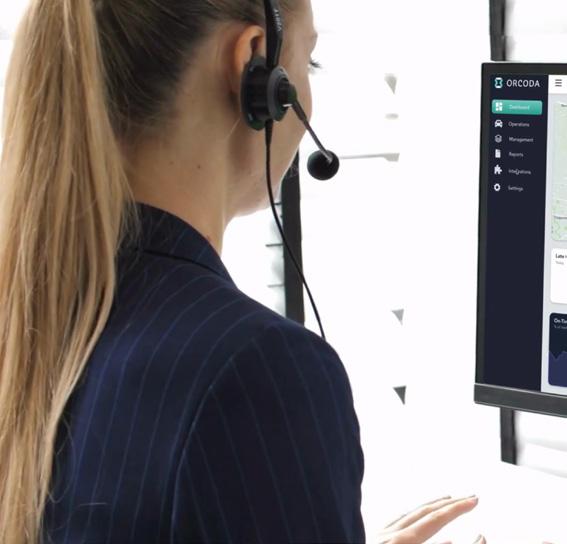
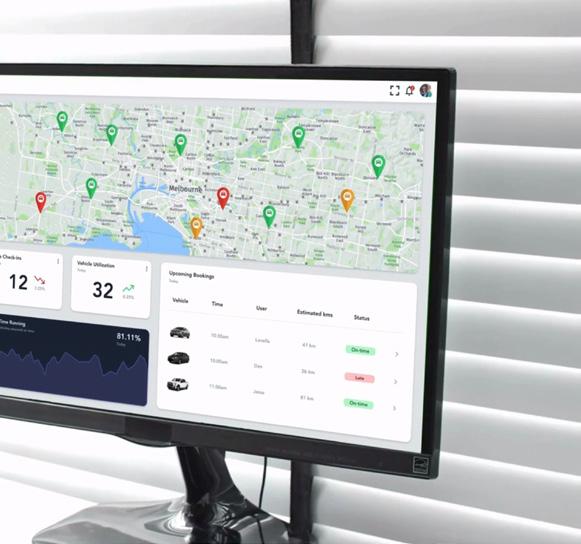
attention of renowned icons like Teletrac Navman and Telstra where they now market their products as part of their product suite and go-to-market strategies.
This is not all. Orcoda is making waves with its groundbreaking technologies and innovative solutions, and its customers choose it over its competitors, because the company delivers not just what they need now, but also has the potential to meet their future needs.
Orcoda is a leading smart transport solutions provider on a mission to transform the transportation industry
Orcoda has an unwavering commitment to elevating client experiences, optimising services, maximizing asset utilisation, ensuring compliance, and delivering insightful reporting. Some of the ways Orcoda achieves this include exceling in automating traditionally laborintensive manual tasks, streamlining processes and eliminating inefficiencies. This not only enhances operational speed but also significantly reduces the margin of human error, contributing to a more reliable and efficient workflow. Similarly, in its pursuit of sustainability and efficiency, Orcoda promotes a paperless workflow. By leveraging digital platforms and innovative technologies, the company enables clients to digitally transition from traditional, resource-intensive paperwork to a seamless and environmentally friendly digital ecosystem.
Moreover, Orcoda harnesses the power of AI and ML to derive actionable insights from vast datasets. This empowers its clients to make informed decisions, optimise processes, and stay ahead in an ever-evolving business landscape. Orcoda also ensures that assets are deployed in the most efficient manner, leading to

Orcoda has an unwavering commitment to elevating client experiences, optimising services, maximizing asset utilisation, ensuring compliance, and delivering insightful reporting enhanced productivity and reduced operational costs through its real-time monitoring and intelligent algorithms. In addition, Orcoda's software facilitates automated health and safety checks, managing crucial transport operational
aspects such as fatigue, load limits, pre-start safety checklists, and fit-for-work declarations.
By automating these critical processes, the company not only mitigates risks but also bolster compliance, providing its clients with robust

governance for a secure and accountable operational environment.
In Orcoda’s approach to digital transformation, the company begins by identifying the specific needs and goals of its clients, ensuring a good fit, and surpassing expectations. The company also focuses on efficient data gathering and integration for 100% visibility in transport operations. Its easy-to-use software promotes enhanced user adoption and overall effectiveness. Likewise, Orcoda implements robust measures to protect sensitive data and ensure compliance with industry regulations. Altogether, Orcoda’s integrated

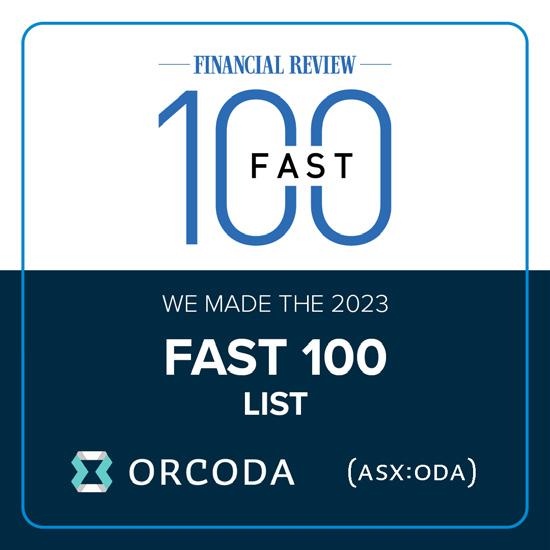
smart transport technology solutions not only enhances business operations but also helps clients make informed business decisions.
In the past, Orcoda was presented with a challenge by TransitCare to develop software specifically for the community transport sector, who provide transportation to the elderly and disabled. Given the fact that community transport has multiple constraints associated with it when transporting persons with disabilities or persons who are aged, one of Orcoda’s challenges was being able solve these multiple constraints with Optimized AI that could do a solve very quickly on 2000-3000
The company has a remarkable retention rate with long-term clients who continue to engage with Orcoda's services over an extended period
constraint iterations that could take a human week to complete. “We achieved this in 2018, and that is why we are a leader in this sector,” reveals Geoff.
Another challenge of Orcoda’s customers was throughput of parcels and their delivery during the very busy Xmas period. By using OLMS and Orcoda’s innovative optimization engine, the client organisation was able to increase throughput by 40% without increasing the number of vehicles or the number of drivers.
The success of Orcoda's services can be measured by numerous testimonials and referrals from its impressive list of clients. The company has a remarkable retention rate with long-term clients who continue to engage with Orcoda's services over an extended period. This demonstrates that Orcoda is delivering consistent value, meeting client expectations, and fostering strong, enduring relationships.
For instance, Orcoda's transformative impact on Mt Buller & Mt Stirling Resort's transportation operations is evident in their app's success. With over 62,500 users to-date, the digital platform optimised scheduling, monitored all ride-share vehicles, and tracks approximately 400,000 passenger movements annually. The app’s realtime status got updated and interactive maps improved service, reliability, and efficiency. Likewise, automation reporting was streamlined, KPIs were met, and overall costs were reduced. As a result, the comprehensive solution not only enhanced guest experiences but also increased visibility, safety, and compliance. Matt Elliott of Mt Buller & Mt Stirling Resort attested to Orcoda's pivotal role, praising its efficiency
in managing bookings, payments, live data, and real-time vehicle tracking. Overall, Orcoda's solution exceeded expectations, delivering a seamless and transformative transportation experience.
According to Geoff, Orcoda consistently invests in research and development in order to anticipate future technological advancements and industry trends so that the company can maintain a competitive edge for its clients. Through ongoing research and development investments, Orcoda is committed to advancing its transport logistics technology, enhancing existing solutions, and introducing transformative technologies that redefine smart cities of the future. Furthermore, the company's dedication to innovation and sustainability positions Orcoda to revolutionize the transportation industry and redefine business operations within the global supply chain. Some of its recent innovations that will drive its future growth include Orcoda Go, Orcoda Notify, Orcoda Connect, and Orcoda Rental.
At Orcoda, Geoff strives to create an environment where the teams in each of the business units have a very clear vision of what they do and what they need for sustained growth. To achieve this vision, he sets goals that are achievable and empower his team members to be innovative but align that innovation with Orcoda’s core values and risk mitigation strategies. He reveals, “I get the team to focus on initiatives that provide
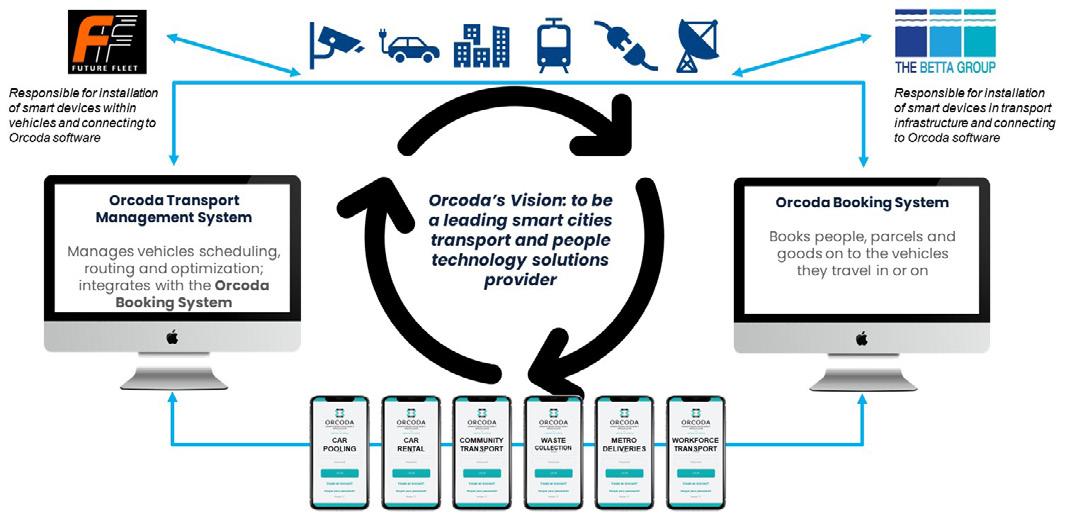
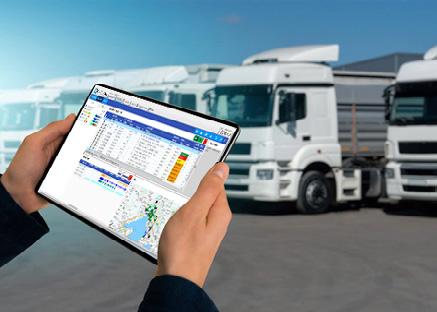
immediate benefits while also investing in projects that lay the foundation for future growth e.g. smart cities of the future.”
Over the years, Geoff’s success mantra as Managing Director of multiple organizations has always been successful stakeholder engagement. He considers it to be an essential tool to achieve success. “By actively involving
all stakeholders in the decision-making process, we gain diverse perspectives, mitigate risks and enhance reputation and credibility,” shares Geoff. He also mentions that successful engagements with multiple stakeholders in the past have taught him to get early involvement, tailor approaches, and have transparent communication processes. Moreover, as a leader, he has always acted with integrity, honesty, transparency, responsibility, fostered innovation, and has been governance focused.
Moving forward, Orcoda will continue to remain dedicated to pushing the boundaries of smart transport technology. “With our unwavering commitment to innovation and sustainability, Orcoda is poised to reshape the transportation industry and revolutionise the way businesses operate within the global supply chain,” concludes Geoff.

Steven Claes, CHRO at a European stock quoted developing investor in logistics real estate (Montea), is a purpose-driven leader harmonizing business objectives with workplace culture. His credentials, including a Law & Taxation Master's from Katholieke Universiteit Leuven, Vlerick Business School accreditations and Better Minds at Work coaching credentials, have fuelled his influential roles across global companies as Tessenderlo Group, SWIFT, Chiquita, amongst others. Acknowledged as a LinkedIn Top Voice in (thought) leadership, Steven champions culture-centric businesses. Despite his humility, Steven's proficient use of platforms to ignite discussions on strategy and leadership underscores his tangible impact in promoting a culture-centred approach. Steven continues to enlighten the HR world, leading the way in demonstrating its influential role in shaping tomorrow’s business landscape, connecting talent with success & stories.
 Steven Claes
Steven Claes
In the Human Resources realm, the term "employee experience" has steadily taken centre stage as a core focus area. Curating this employee journey, from onboarding to departure, forms the cornerstone of modern HR practices. An indispensable part of this reciprocal relationship between employee and employer is the acknowledgement of efforts and contributions – known as recognition.
In this age of virtual environments and remote work, recognition has become even more pivotal. It plays an essential role in threading a sense of connection throughout remote work dynamics. The rise of peer-to-peer recognition programs has significantly contributed to an environment where the focus shifts towards reinforcing unity, fostering a positive cycle of acknowledgement.
A shift in management mindset has also been unmistakable. To ensure the efficacy of recognition, it must be catered to individual
preferences and the requirements of employees. Gone are the days when annual recognition and feedback were the norm. Today, real-time, frequent recognition, delivered instantly upon observing desired behaviours, has proven to be a breakthrough approach.
The digital realm has not hesitated to embrace this transformation. With digital recognition platforms, the process of acknowledging contributions and accomplishments has become streamlined and regular, especially amid the rise of decentralized teams and remote working.
A central change in recognition practices is the alignment of recognition with the organization’s purpose. By rooting recognition in the company's mission and vision, we emphasize the true value an employee brings to the organization – thereby enhancing their sense of accomplishment and satisfaction.
Engagement and recognition constitute the central themes in contemporary HR practices. The primary focus is on harmonizing the values
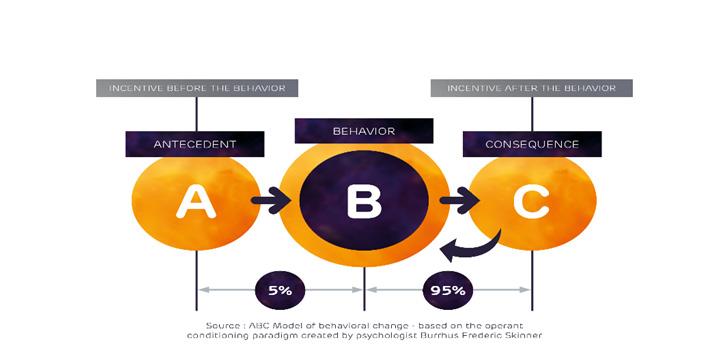
Engagement and recognition constitute the central themes in contemporary HR practices
of the employee and the company, maintaining a congenial and goal-oriented workplace culture. The value of this approach lies in how it positively influences employee engagement by nurturing a sense of purpose, mastery of their roles, and autonomy in their work.
This brings us to the ABC model – Behaviour is a function of its Consequences. The premise is straightforward - "A" or Antecedent is a trigger, "B" for behaviour, and "C" denotes consequence. By modelling recognition as a consequence that positively reinforces desired behaviours, we cultivate a company culture that actively promotes and celebrates individual and team accomplishments.
Consider the case of Alice, a graphic designer who consistently delivers high-quality work within tight deadlines (Behaviour). Alice's manager publicly acknowledges her efforts during the team meeting (Consequence), enhancing her motivation, satisfaction, and sense of appreciation (Result). Alice's colleagues, inspired by her achievements, display improved
work attitudes, and a more supportive work environment (Event).
Performance management, often not considered hand-in-hand with recognition, shares an intrinsic linkage with it. Recognizing and rewarding desired behaviours, along with their results, should be ingrained within the performance management process.
In today’s rapidly evolving work environment, embracing disruption and transformation can create a feedback mechanism that supports alignment with a company's vision. The advent of new technologies, combined with agile work methodologies, provides fertile ground for delivering immediate, actionable feedback, thereby nurturing a culture of recognition.
In conclusion, recognition is an integral component of the employee experience. By tailoring it to be personal, agile, and aligned with the company's vision, we create an environment conducive to elevated engagement, motivation, and a positive company culture.
Catherine is a Top Global CEO Coach & C-Suite Coach who has decade-long experience coaching CEOs and Senior Executives across the globe. Through an unparalleled coaching program that Catherine created, she has a track record of developing high-impact leaders who came from more than 45 cultural backgrounds spanning 5 continents and empowering them to achieve deep transformation and personal growth, equipping them with the skills and mindset necessary to excel in various business disciplines. Processing a unique combination of qualities has led Catherine to cement her status as one of the most effective and sought-after coaches in the industry globally and is recognized as the World’s Top Perform Coach 2018, LinkedIn Top Voices 2022, Global Leadership Influencer, and Top 10 Global CEO Coach & Executive Coach 2023.
 Catherine Li-Yunxia
Catherine Li-Yunxia
In the dynamic landscape of today's business world, where change is constant and competition is fierce, the role of C-Suite leaders has never been more crucial. These executives serve as the architects of an organization's destiny, responsible for steering it through the currents of innovation, global challenges, and market volatility. As the captains of the corporate ship, C-Suite professionals must possess a multifaceted skill set to not only weather storms
but to navigate uncharted waters and lead their teams to new horizons.
Executive leadership is a demanding art that requires more than just strategic acumen. C-Suite leaders are tasked with shaping the future trajectory of their organizations, making decisions that ripple across departments, and inspiring teams to achieve unprecedented heights. To meet these challenges head-on, they must possess a diverse set of skills that extend far beyond traditional management expertise.
Successful leaders are visionary architects capable of crafting a compelling and ambitious roadmap for the future

In the following pages, we embark on a comprehensive exploration of twelve key skills that define effective C-Suite leadership. From crafting a compelling, long-term vision to fostering a culture of innovation, these skills are the building blocks of successful leadership in the modern business landscape. As we delve into each skill, we uncover the nuances, strategies, and real-world examples that illuminate how C-Suite leaders can not only navigate but thrive in the complexities that come with executive leadership.
Join us on this journey as we dissect the anatomy of leadership at the highest echelons of corporate governance. Each skill explored is a brushstroke on the canvas of a C-Suite executive's portrait, highlighting the qualities that set them apart in a competitive and ever-evolving business environment.
As we unravel the layers of these leadership skills, it becomes evident that effective C-Suite leadership is an intricate dance between strategy, people leadership, adaptability, and ethical stewardship. The successful execution of this dance propels organizations forward, fostering resilience, growth, and a legacy of leadership excellence.
In the pages that follow, let's navigate the challenging terrain of C-Suite leadership, uncovering the insights and strategies that empower executives to not only meet the demands of today but to anticipate and shape the challenges of tomorrow.
Successful leaders are visionary architects capable of crafting a compelling and ambitious
roadmap for the future. A well-defined and inspirational vision not only motivates teams but also guides strategic decisions, fostering long-term growth and sustainability.
A leader is only as strong as the team they lead. C-Suite executives must excel in assembling diverse, high-performing teams, fostering a collaborative culture, and empowering individuals to contribute their best work. Investing in talent development is crucial for sustained success.
Effective leaders understand that success is not achieved in isolation. They promote cross-functional collaboration, leveraging systemic insights to align various parts of the organization towards common strategic goals. This holistic approach enhances adaptability and responsiveness to market changes.
Leadership is about influence. C-Suite executives must adeptly navigate stakeholder relationships, influencing diverse groups to align with the organization's objectives. Building strong partnerships with stakeholders ensures a unified front in achieving common goals.
Change is inevitable, and effective leaders embrace it. They exhibit adaptability, steering the organization through transformational periods with resilience and agility.
Successful leaders anticipate change, align teams, and ensure a smooth transition.
6. Effectively Articulate Vision, Goals, and Strategies:
Communication is at the heart of leadership. C-Suite executives must be adept communicators, capable of clearly articulating the organization's vision, goals, and strategies. Clarity fosters alignment and empowers teams to execute with precision.
7. Connect with Empathy and Awareness:
Leaders who connect on a human level inspire loyalty and commitment. Empathy and selfawareness are critical in understanding and responding to the needs of individuals within the organization. This connection builds a positive culture and enhances employee well-being.
In an interconnected world, global awareness is essential. C-Suite leaders must understand the nuances of diverse markets, cultures, and geopolitical landscapes. Leading with a global mindset allows organizations to navigate international challenges and opportunities.
Crisis management is a defining aspect of leadership. C-Suite executives must remain composed under pressure, making decisive and informed decisions to guide the organization through turbulent times. Strong crisis leadership builds resilience and trust.
Adversity is an inevitable part of the business journey. Leaders must not only weather storms
C-Suite executives must adeptly navigate stakeholder relationships, influencing diverse groups to align with the organization's objectives

but also extract valuable lessons from challenges. The ability to stay composed, learn from experiences, and adapt constructively contributes to long-term success.
11. Exemplify and Foster Ethical Culture:
Ethical leadership is the cornerstone of organizational integrity. C-Suite executives must exemplify and foster a culture of ethics, ensuring that all business practices align with the highest standards of integrity. This commitment builds trust among stakeholders.
12. Innovate to Change and Disrupt to Strive:
Innovation is the engine of progress. C-Suite leaders must champion a culture of in-novation, encouraging experimentation, and embracing disruptive ideas. Staying ahead of the curve ensures that organizations not only adapt to change but drive it.
As we draw the curtains on this exploration of C-Suite leadership, it becomes clear that the C-Suite is more than just an executive suite; it is a realm where leadership transcends traditional boundaries. It is a dynamic theater where executives are not just decisionmakers; they are visionaries, strategists, and catalysts for change.
In this elevated echelon of corporate governance, leadership is not a static state but a perpetual journey. Mastering the twelve skills we've uncovered is not a mere check-list; it's a transformative process that empowers executives to navigate the intricate tapestry of complexity, inspire their teams to scale new heights, and drive sustainable success in an ever-evolving business landscape.
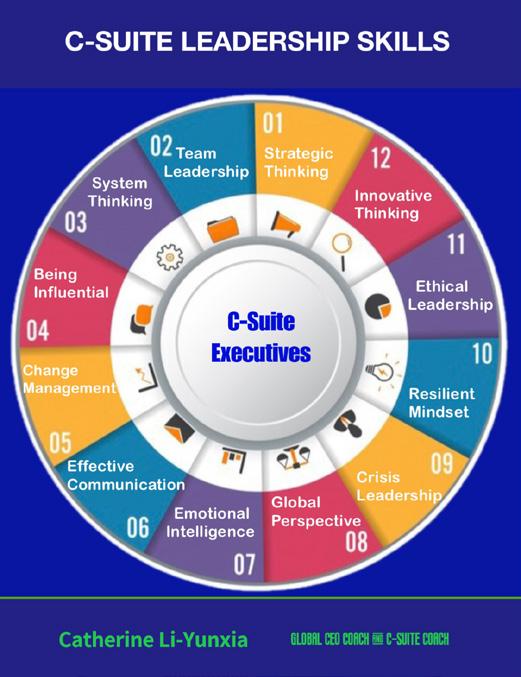
Each skill we've dissected – from developing a compelling, long-term vision to fostering a culture of innovation – serves as a compass, guiding leaders through the un-charted horizons of modern business challenges. The effective C-Suite executive is not confined by the present; they are architects of the future, shaping the destiny of their organizations with foresight and resilience.
To inspire teams to surpass expectations, to lead with empathy, to innovate fearlessly, and to steer through crises with composure –these are not just skills; they are the hallmarks of leadership excellence. It's about creating a legacy that extends beyond balance sheets and profit margins – a legacy of empowered teams, ethical governance, and a culture of perpetual growth.
As we reflect on the multifaceted role of C-Suite leaders, we see that their journey is not solitary; it's a collective voyage with teams and stakeholders as co-navigators. The impact of effective C-Suite leadership reverberates beyond the boardroom, shaping industries, influencing markets, and leaving an indelible mark on the corporate landscape.
Leading with a global mindset allows organizations to navigate international challenges and opportunities
The C-Suite is not a summit to be conquered; it's a dynamic landscape where leaders continuously evolve, adapt, and inspire. The mastery of these twelve skills is not an endpoint; it's a catalyst for a perpetual journey of growth, innovation, and leadership excellence. As we navigate the uncharted horizons together, let the legacy of C-Suite leadership be one of visionary impact, resilience, and a steadfast commitment to driving positive change in the ever-evolving business terrain.




